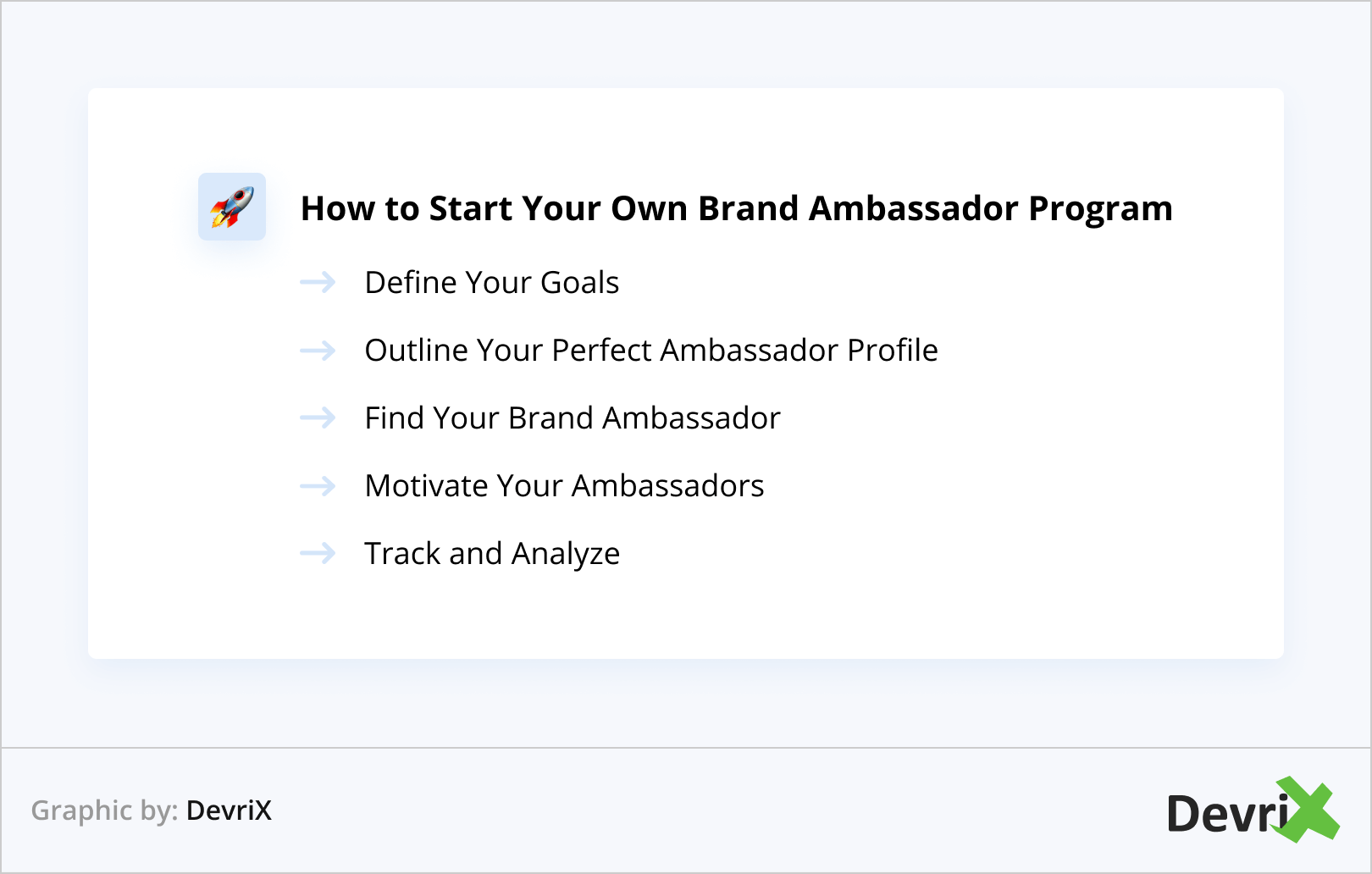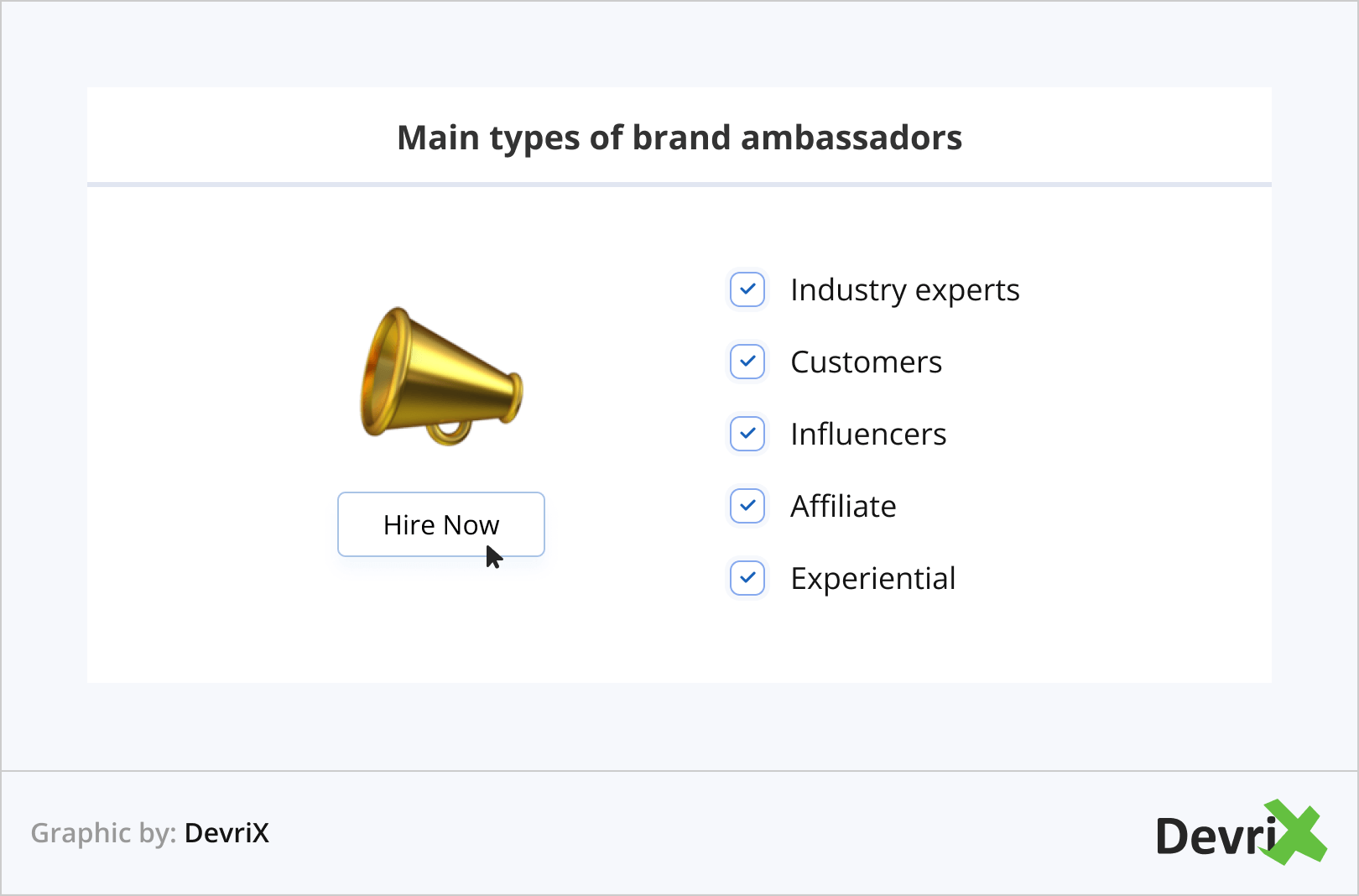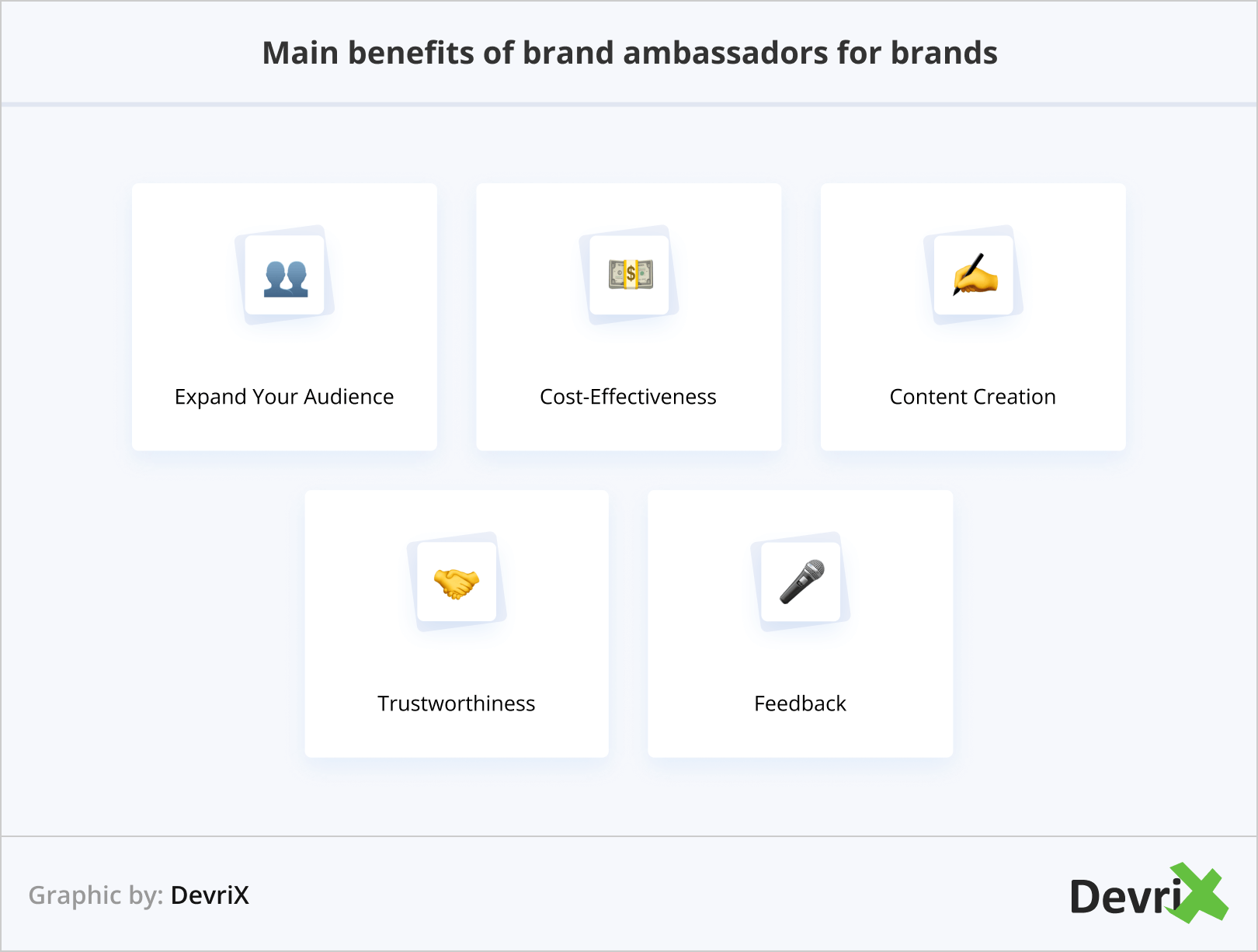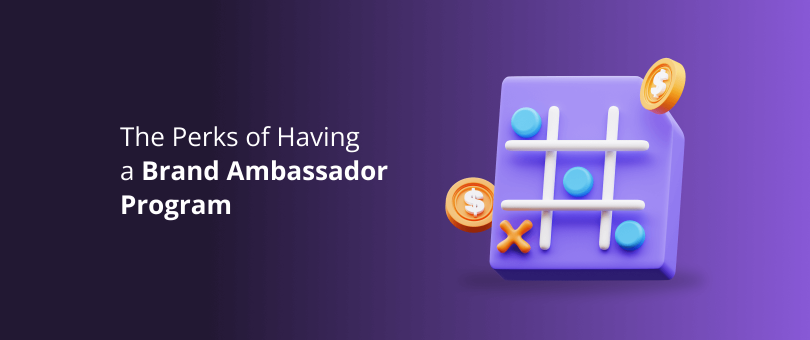A brand ambassador can be extremely influential for your business. It’s no coincidence that there are so businesses are clamoring to hire such a desired person.
But how do brand ambassador programs work, and how exactly does a brand ambassador program help your business?
Let’s find out more.
What Is a Brand Ambassador Program?
It’s simple. You create a long-lasting relationship between your brand and people that are passionate about your product or service (your brand, in general).
You might argue that it’s the same as an influencer, but it’s not. The brand ambassador doesn’t necessarily need to be a famous person with thousands of followers, it can be a regular customer.
Of course, LiveScore having Cristiano Ronaldo as their brand’s official ambassador surely helps a lot, however, not everyone can afford such celebrities.
No need to worry about it, though, as you can achieve great results using your own customers and employees to get the job done.
How to Start Your Own Brand Ambassador Program

- Define Your Goals
- Outline Your Perfect Ambassador Profile
- Find Your Brand Ambassador
- Motivate Your Ambassadors
- Track and Analyze
Define Your Goals
The very first step towards starting your own brand ambassador program is to define your goals – what do you want to achieve? Do you want to increase your brand awareness, generate more sales, reach new audiences, enhance customer loyalty or develop your social media presence?
Whatever it is, it’s essential to outline your goals as well as set expectations, so you can look for the type of brand ambassador that is right for your brand
Outline Your Perfect Ambassador Profile
Next, you need to define what the perfect ambassador for your brand is. In general, there are 5 types of brand ambassadors:

- Industry experts. Someone with specific knowledge within the industry. Such an ambassador easily wins the trust of users due to their expertise. Brands usually connect with such experts to increase their credibility, and educate their customers.
- Customers. Who better to promote your company than a satisfied customer that enjoys using your products/services? Keep in mind that these are people who are not affiliated with the brand, and promote it out of satisfaction and pure love. Therefore, they bring a lot of authenticity and personality to your brand.
- Influencers. Needless to say, these people have a huge following and can mobilize large groups of people in a jiffy. Influencers have credibility within their niche, and can easily convince their followers to try your products or services.
- Affiliate. Following the principle of affiliate marketing, some ambassadors can be used to promote your brand, receiving a commission for every sale they’ve generated. Thus, the main purpose of such ambassadors is to generate more sales for your business.
- Experiential. Strong communication is key here. Experiential ambassadors convey your core values, and their main purpose is to develop and maintain the positive image of your brand.
Readers Also Enjoy: How to Measure and Improve Influencer Marketing ROI – DevriX
Find Your Brand Ambassador
After you’ve defined what type(s) of ambassadors you want, it’s time to find them. The logical question is where to do that?
For starters, it’s a great idea to identify where your target audience spends their time. One of the easiest, although time-consuming, ways to start is social media. For instance, you can check if there are already people that have mentioned your brand, using tags or hashtags.
Of course, not everyone that mentions your company on social media is fit to be your brand ambassador.
The good news is that there is special ambassador management software which can help you find the perfect ambassador for your company.
If you don’t want to use dedicated software, you can delve into your own customer data. See which customers buy from you the most – loyal customers can be great ambassadors. Plus, if you notice that the same loyal customer has also promoted your product/service on social media, it’s a good sign of role suitability.
Motivate Your Brand Ambassadors
You’ve finally found and have started working with brand ambassadors, good job! The entire process doesn’t end here, though. It’s important to keep them motivated and encourage their good work.
Even if the person is promoting your brand for free, it’s a sign of appreciation and gratitude to show them how much you value their dedication.
C’mon, the least you can do is give them some of your own products that they love so much.
Track and Analyze
In the long run, it’s vital to track and analyze the performance of your ambassadors and whether something needs to be changed or not.
Naturally, it’s a good idea to set the metrics you want to track right from the start. For example, those could be: number of social media posts, engagements, reposts and shares, inbound traffic, sales volumes, and so on.
Benefits of Ambassador Programs For Brands
For brands, ambassador programs can be really beneficial to exposure, sales, and awareness. In a nutshell, here are the main benefits of brand ambassadors for brands:

- Expand your audience. Even if they are not influencers, ambassadors can help your business reach new customers that you would have probably never got hold of on your own.
- Cost-effectiveness. It’s much cheaper to use brand ambassadors compared to other marketing tactics. After all, your ambassadors can work for free or only get paid after they’ve reached a certain goal.
- Content creation. Social media posts, reviews, articles… brand ambassadors can create a lot of content to showcase the awesomeness of your brand.
- Trustworthiness. People like to listen to the honest opinions of others, rather than sales pitches from corporations. The best part is that people are more likely to trust brand ambassadors, due to their authenticity and trustworthiness.
- Feedback. Since ambassadors already love your products/services, they can serve as great testers, as well. They can offer valuable feedback on what you can improve, and what the public is seeking.
Here’s a perfect example of how an ambassador can benefit your brand, without even being officially signed.
The legendary McDonald’s fan Don Gorske. On May 17, 1972, he ate his first Big Mac and since then he’s been eating a Big Mac almost every day, winning the Guinness World Record reaching 32,672 Big Macs eaten in a lifetime by 2021.
One of the biggest criticism towards McDonald’s has always been the negative health impact of their food, yet, here’s the living proof that eating their burgers daily generally won’t cause you major health problems.
Still, Don Gorske has never been an official ambassador of McDonald’s, and doesn’t receive any compensation for being the best brand ambassador there could be. Shame on you, McDonald’s.
Does Your Business Need a Brand Ambassador?
Before we wrap up, it’s good to know that not every company needs a brand ambassador, at least not right away. Here’s how to establish whether you are ready to start an ambassador program.
- Customers and influencers are talking and mentioning your brand on social media without being asked or paid to do so.
- You have an established community of loyal customers and employees that share the value of your brand.
- The financial status of your company allows you to sustain marketing campaigns, commissions, and ambassador partnerships.
- You have successfully delved into influencer marketing, and want to scale more.
- Your social media accounts and general online presence is very well developed.
Of course, there are companies that start their program without meeting all the requirements, but it’s surely safer, if you do.
The Takeaway
Having a brand ambassador is a valuable asset that can take your business to the next level.
Chances also are, if you have a good social media presence with loyal customers and happy employees, you are already halfway there.
Don’t miss out on the opportunity to create the ultimate brand experience and win over more and more customers.




